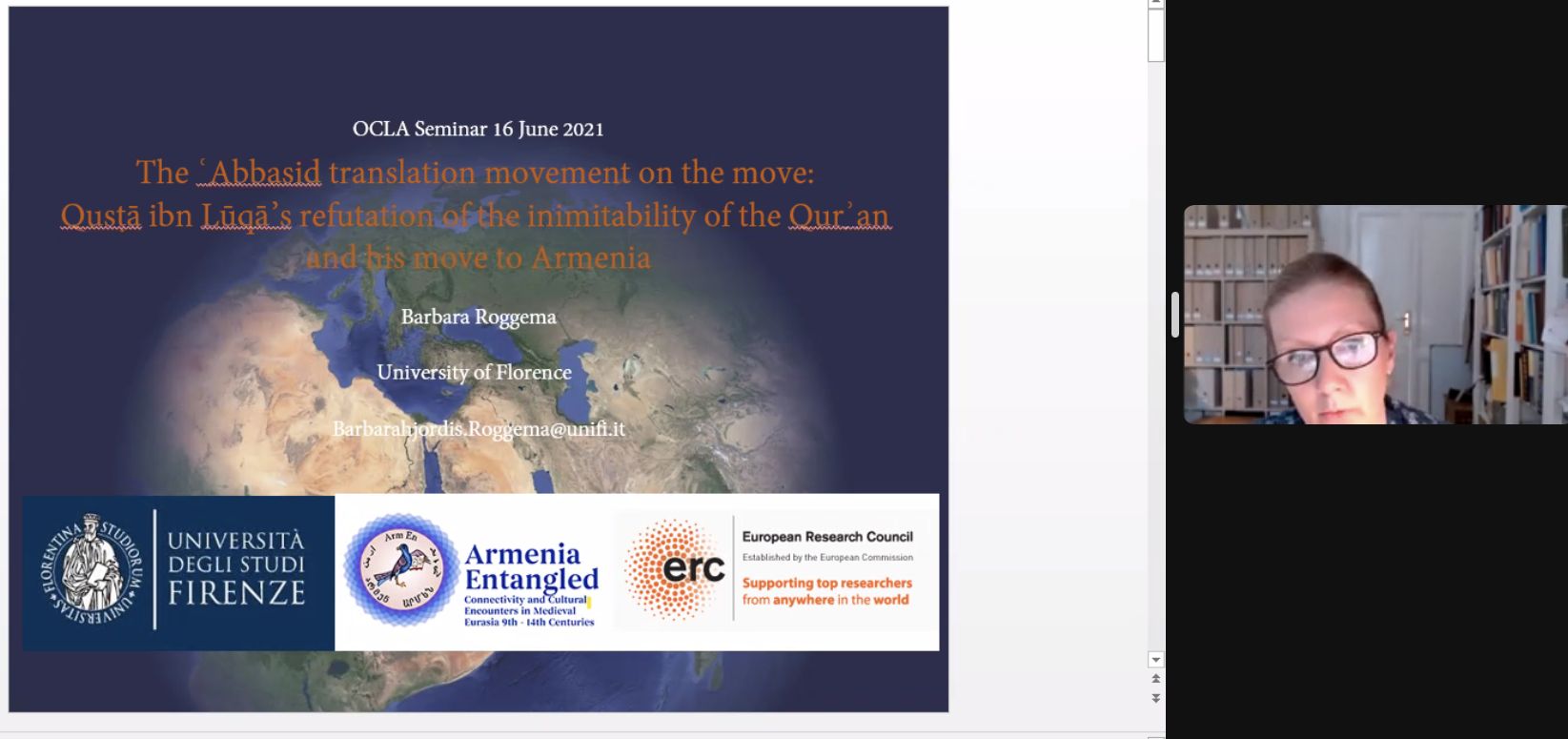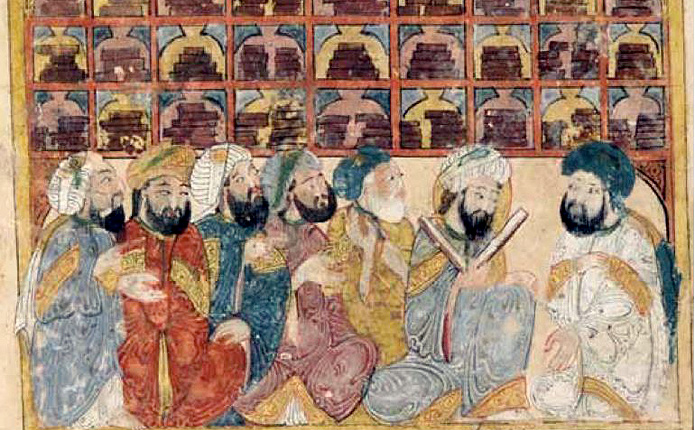ArmEn on the move around Europe. Lectures by Barbara Roggema in Oxford, Paris, and Bonn
2022 has been a very dynamic year for the ArmEn team. Its highlight was the first major ArmEn conference, organized by Elisa Pruno, Michele Nucciotti and our Primary Investigator Zara Pogossian, which took place in December in Florence. The conference brought together a group of distinguished scholars whose research sheds light on trade relations and cultural exchanges between Armenia and Asia and Europe. The ArmEn researchers also travelled far and wide during this year for manuscript research, lectures and archaeological projects.
Our Arabist and Middle Eastern historian Barbara Roggema had the opportunity to speak about ArmEn on several occasions. She was invited to Oxford in June for a lecture at the Oxford Centre for Late Antiquity's After Rome and Further East seminar series. She spoke about her recent research into the life of Qusta ibn Luqa, the famous Christian scientist and translator who played a major role in the Graeco-Arabic translation movement in the early Abbasid period.

She focused on how the few bits of historical information about Qusta ibn Luqa's move to Armenia and his sponsorship there by Armenian nobles can shed light on the chronology of his life. According to Roggema, some brief biographical remarks in Arabic works have been misread and misinterpreted by modern researchers. As a result, his stay in Armenia and his death have been wrongly placed in the early tenth century CE. This has had repercussions on how the correspondence between an eminent member of the Ibn al-Munajjim family with Qusta ibn Luqa and his famous fellow translator Hunayn ibn Ishaq has been reconstructed. Qusta wrote a comprehensive refutation of the Quran's inimitability in response to Ibn al-Munajjim's apology for the Prophet Muhammad's prophethood. Roggema's fresh look at the correspondence provides insight into which Ibn al-Munajjim corresponded with Qusta. Her acquired insight deserves to be placed in wider research on contacts between Christians in Iraq and Armenia during the ninth century CE.
Another occasion where Roggema presented her research on this polemical correspondence was in Paris. She was invited to give a tandem keynote together with Mark Swanson (Chicago) at the 13th Symposium Syriacum and the 11th Congress of Christian-Arabic Studies. Their tandem presentation gave an overview of developments in the research field of Eastern Christian texts written in response to Islam. They gave a panoramic lecture that highlighted new texts and trends in research since the publication of the first five volumes of Christian-Muslim Relations: A Biliographical History (600-1500 CE). The lecture was also a first occasion to briefly introduce a newly-discovered interreligious disputation to colleagues. The Story of the Holy Monk Makar, the Emir, Aghtap‘ar, a Jew, a Nestor[ian], and a Sorcerer Who Believed in Christ, identified by Armine Melkonyan.

It was probably written in Arabic and needs to be added to the corpus of apologetic literature of Middle Eastern Christians in the ninth century. The discovery of this text is one more piece of evidence that Christians were very active and creative in attacking Islam and had already established a repertoire of arguments in response to criticisms of their own religion; it falls into place with Roggema's assertion that Christian texts that contain attacks on a whole range of aspects of Islam are often dated later than can be justified. The text also underscores the interest in Armenia in adopting the apologetic ideas developed by Syro-Arabic Christians, as is already known from translated works of Nonnus of Nisibis, Patriarch Timothy and Abraham of Tiberias. Roggema hopes to better chart this process of exchange in a forthcoming article.
Most recently, she was able to share her thoughts on this text corpus at the new International Center for Comparative Theology and Social Issues of the University of Bonn, where she had a lively discussion with graduate students studying Islam and early Christian-Muslim relations in the Middle East.
Last update
31.01.2023
